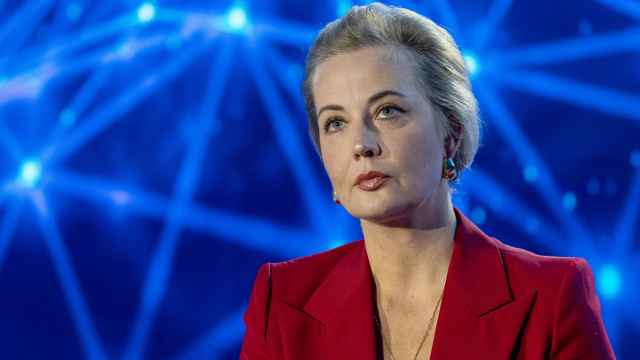The situation in Russia has changed so much in recent weeks that the presidential election campaign has almost begun to resemble a real political contest.
Take Prime Minister Vladimir Putin, for example. He understands that he must do something to boost his declining popularity. Putin's ratings have dipped so low that he will almost certainly have to face a second round of voting, even if the results are "corrected upward" by 5 percent to 15 percent as they were during the State Duma elections on Dec. 4, according to reliable election-monitoring sources.
State-controlled television is filled with pro-Putin programs presented as if they were independent, informational reports. What's more, these programs are exempt from the draconian electoral laws on campaigning because the laws apply to opposition candidates only, not to the incumbent.
What should a politician do to increase his popularity if he has already exhausted all of his propaganda resources?
One option is to shift his position on those issues where his support is weakest. Reinstating direct gubernatorial elections was a good example, even if the actual implementation of Putin's concessions seems murky.
Another option is to give an overarching theme to his campaign. Although polls allow politicians to learn what voters think and to adjust their positions accordingly, it is up to the candidate to decide which issue would best serve as the primary focus.
Judging by speeches Putin made last week, he is focusing on the large income gap in the country and the social injustice that working-class and poor people feel. Putin is skillfully playing off the people's desire for a redistribution of the country's wealth that is controlled by a small percentage of the population.
For example, one of Putin's proposed measures is a luxury tax, but it has done little to inspire citizens and is unlikely to win him many votes.
Another proposal is a one-time tax on large assets that were obtained during the controversial privatizations during the 1990s. This has the potential to bring major political dividends because voters would feel that a prior wrong had been at least partially righted if those who profited the most from the privatizations were now forced to pay large taxes on their spoils.
But there are a number of problems with this proposal. First, how would new owners who purchased a business after 2000 from the original owner from the 1990s be treated? If new owners paid market prices for their businesses, they would not have profited in any way from the 1990s privatizations.
But let's suppose for the sake of argument that this wasn't an issue and the government was able to collect $100 billion by taxing the original 1990s "robber barons" on their assets obtained in shady privatization deals. If they divided this seemingly huge sum equally among Russia's 140 million people, this would give each citizen only $700. Is that really enough money to appease the deep sense of economic injustice that most Russians feel about the 1990s?
Clearly not, but few will do the math and figure this out. In any event, on March 4 Putin's populist proposal might attract a couple of votes from those voters who abandoned him over the past months. Or at least he hopes to attract them.
Konstantin Sonin is a professor at the New Economic School in Moscow and an economic adviser to presidential candidate Mikhail Prokhorov.
A Message from The Moscow Times:
Dear readers,
We are facing unprecedented challenges. Russia's Prosecutor General's Office has designated The Moscow Times as an "undesirable" organization, criminalizing our work and putting our staff at risk of prosecution. This follows our earlier unjust labeling as a "foreign agent."
These actions are direct attempts to silence independent journalism in Russia. The authorities claim our work "discredits the decisions of the Russian leadership." We see things differently: we strive to provide accurate, unbiased reporting on Russia.
We, the journalists of The Moscow Times, refuse to be silenced. But to continue our work, we need your help.
Your support, no matter how small, makes a world of difference. If you can, please support us monthly starting from just $2. It's quick to set up, and every contribution makes a significant impact.
By supporting The Moscow Times, you're defending open, independent journalism in the face of repression. Thank you for standing with us.
Remind me later.





